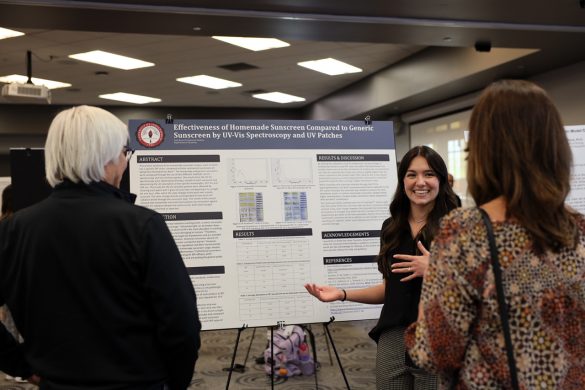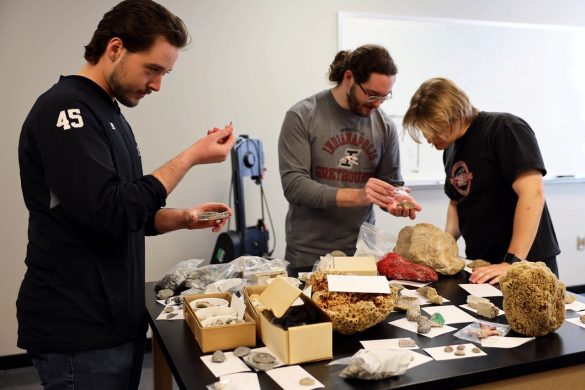Adjuncts—they are at campuses all across the country and often their status is not recognized by the students they teach. Chances are many students at the University of Indianapolis have had an adjunct in class and did not even realize it.
This past January, the House Committee on Education and the Workforce Democratic Staff published a study about adjuncts that stated, “In 1970, adjuncts made up 20 percent of all higher education faculty. Today, they represent half.”
The increased use of adjuncts has caught the attention of media outlets such as The New York Times, which has published several articles about how these part-time faculty members often struggle to get by. One such article that caught quite a bit of attention was a profile on March 27 about Mary-Faith Cerasoli, a homeless professor in New York.
With debates about the role of adjuncts on college campuses, it is important to understand exactly what role an adjunct fills.
According to Professor of History and Faculty Senate Executive Committee Member James Fuller, adjuncts are part-time instructors who are hired by the course and used to supplement the full-time faculty. Fuller’s knowledge of adjuncts not only comes from working with them in his department but also having been one.
“When I first came out of graduate school and I was looking for a job, the summer before I got my job, I was adjuncting around and taught a couple of different classes at different places,” Fuller said.
He also discussed how the job kept him afloat during his graduate studies.
“When you are a grad student, what is really a fairly small amount of money for that class is a big deal for you, especially if you don’t have funding,” he said. “It pays the rent.”
Knowing what position adjuncts fill, the next question would be why colleges need to use them.
“It’s beneficial to have adjuncts teach a certain number of classes because you never know when things might change,” said Chair and Professor of History and Political Science Lawrence Sondhaus. “Enrollments might go up or down. The core curriculum might change.”
Sondhaus explained that adjuncts serve to keep a balance in an ever-fluctuating academic system by making sure required courses can be offered and students are able to take the courses they need.
“It is not really possible for most schools to meet their staffing requirements entirely with full-time faculty,” Sondhaus said. “There were years that I ran as many as 26 sections of a class in an academic year just to make sure all 800 freshmen were accommodated.”
Unlike many of the schools that are currently being discussed such as branch campuses of state schools, Sondhaus said that all of the adjunct positions in his department are seen only as temporary positions usually filled by graduate students who need additional income.
“They also need and want experience teaching in a place other than where they are getting their degree, in which case I would also observe their teaching and write a letter of recommendation for them,” Sondhaus said.
The other type of people who get hired as adjuncts are professionals with real-world experience in the subject being taught.
“One class I always use adjuncts for is state and local government. I usually can get somebody from the state and local government to teach that class,” Sondhaus said. “… Most of those people are doing it because they really love to do it. They want to try and give back, to share their knowledge with students and not so much because of the money.”
Even with the required graduate degree or desired real world experience to get hired, Sondhaus said that most adjuncts at UIndy are used exclusively for introductory-level courses with a few exceptions made for special circumstances or high-profile people.
In this issue, The Reflector focuses on some of the adjunct professors on campus and the courses they currently teach. Beyond the three adjuncts highlighted, there are many teachers who fill the adjunct positions on campus.
Make sure to take the time to let the adjuncts teaching courses know that even though they are part-time professors, they are much appreciated for what they add to the campus community and valued for their knowledge and skills.







